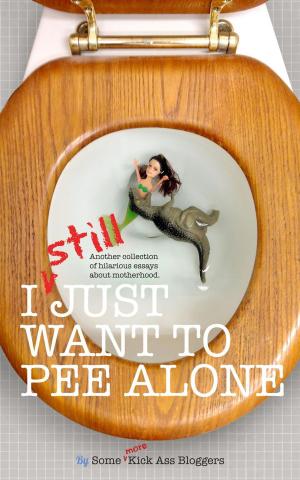| Author: | Roger Gordon | ISBN: | 9780993673214 |
| Publisher: | Roger Gordon | Publication: | November 14, 2014 |
| Imprint: | Smashwords Edition | Language: | English |
| Author: | Roger Gordon |
| ISBN: | 9780993673214 |
| Publisher: | Roger Gordon |
| Publication: | November 14, 2014 |
| Imprint: | Smashwords Edition |
| Language: | English |
Imagine a happy childhood set amidst the backdrop of working-class Sheffield, U.K., in the 1950s and 60s being dramatically upturned by a crumbling marriage. You are coerced into taking sides by your mother, who, like your father, is living with undiagnosed mental illness–all the while dealing with the social stigma of divorce that existed in this era.
"Starting to Frame" is a story about a boy, Roger, who grows up in a working- class home in Sheffield, UK, in the years following WWII. During the initial years (late 1940s), times are hard, and pleasures are found in simple things.
In the 1950s, the cohesiveness that once bound the family together begins to break down. Roger’s mother micromanages a code of conduct in her sons that seems misplaced, administers punishments that are mean-spirited, and displays erratic behavior. Violent arguments erupt between Roger’s parents. When a bitter marital breakup ensues, the roles assumed by Roger and his brother change from observers to participants, as they are coerced into taking sides with their mother. Roger is forced to confront the stigma of the early 1960s that is associated with divorce and marital infidelity, as his mother acquires a new live-in boyfriend.
Despite the unsavory circumstances at home, Roger succeeds in gaining entrance to university. However, the re-fashioned family unit headed by mother’s new partner is not a welcoming one as he is made to feel like a “freeloader.” He is forced to move into lodgings, a situation that is hurtful and embarrassing, given the context of the times.
Pursuing a career in academia, Roger eventually escapes the claustrophobic and caustic atmosphere of his later childhood as he immigrates to Canada. Meanwhile, the family in Sheffield fragments away from one another, leading to life-long estrangements and in his father’s case, incarceration in prison. After long periods of separation, Roger is able to track down each of his parents and reconcile with them.
Throughout the storyline, mental illness, another “taboo” area of acknowledgment in the 1950s and 60s, afflicts several members of this family, including Roger and each of his parents. It is woven into the narrative as a contributory factor to the family breakdown.
The events of this family are cast against news events of the day–local, national, and international. Emphasis is placed on the scene in Sheffield. The dialog is written in the Sheffield vernacular to provide authenticity. Despite the darkness of two major themes (dysfunctional family, mental illness), the narrative deploys a good deal of humor.
This is a story about the futility of family feuding, the innate human need to be accepted and loved, and the need to give more attention to mental illness. It carries with it an important message about reconciliation and forgiveness
Imagine a happy childhood set amidst the backdrop of working-class Sheffield, U.K., in the 1950s and 60s being dramatically upturned by a crumbling marriage. You are coerced into taking sides by your mother, who, like your father, is living with undiagnosed mental illness–all the while dealing with the social stigma of divorce that existed in this era.
"Starting to Frame" is a story about a boy, Roger, who grows up in a working- class home in Sheffield, UK, in the years following WWII. During the initial years (late 1940s), times are hard, and pleasures are found in simple things.
In the 1950s, the cohesiveness that once bound the family together begins to break down. Roger’s mother micromanages a code of conduct in her sons that seems misplaced, administers punishments that are mean-spirited, and displays erratic behavior. Violent arguments erupt between Roger’s parents. When a bitter marital breakup ensues, the roles assumed by Roger and his brother change from observers to participants, as they are coerced into taking sides with their mother. Roger is forced to confront the stigma of the early 1960s that is associated with divorce and marital infidelity, as his mother acquires a new live-in boyfriend.
Despite the unsavory circumstances at home, Roger succeeds in gaining entrance to university. However, the re-fashioned family unit headed by mother’s new partner is not a welcoming one as he is made to feel like a “freeloader.” He is forced to move into lodgings, a situation that is hurtful and embarrassing, given the context of the times.
Pursuing a career in academia, Roger eventually escapes the claustrophobic and caustic atmosphere of his later childhood as he immigrates to Canada. Meanwhile, the family in Sheffield fragments away from one another, leading to life-long estrangements and in his father’s case, incarceration in prison. After long periods of separation, Roger is able to track down each of his parents and reconcile with them.
Throughout the storyline, mental illness, another “taboo” area of acknowledgment in the 1950s and 60s, afflicts several members of this family, including Roger and each of his parents. It is woven into the narrative as a contributory factor to the family breakdown.
The events of this family are cast against news events of the day–local, national, and international. Emphasis is placed on the scene in Sheffield. The dialog is written in the Sheffield vernacular to provide authenticity. Despite the darkness of two major themes (dysfunctional family, mental illness), the narrative deploys a good deal of humor.
This is a story about the futility of family feuding, the innate human need to be accepted and loved, and the need to give more attention to mental illness. It carries with it an important message about reconciliation and forgiveness















